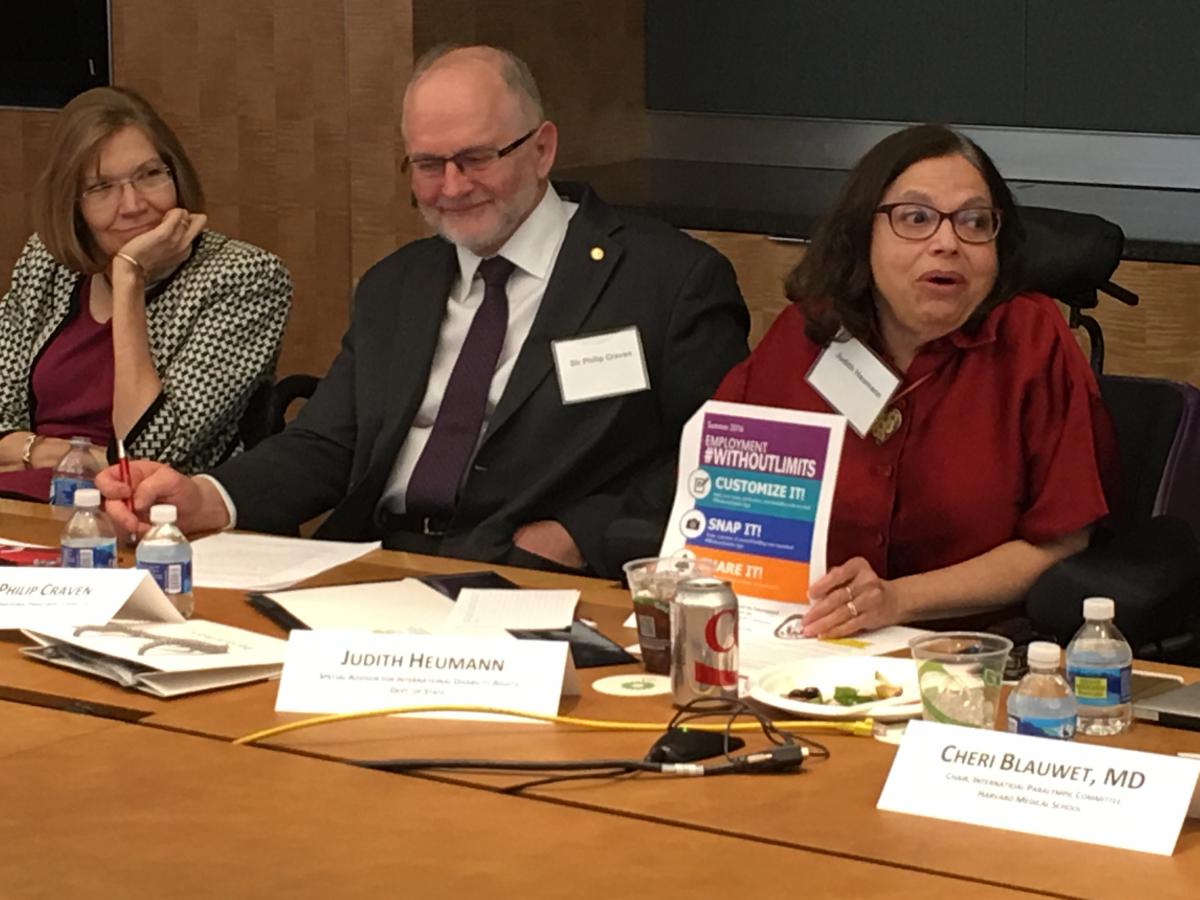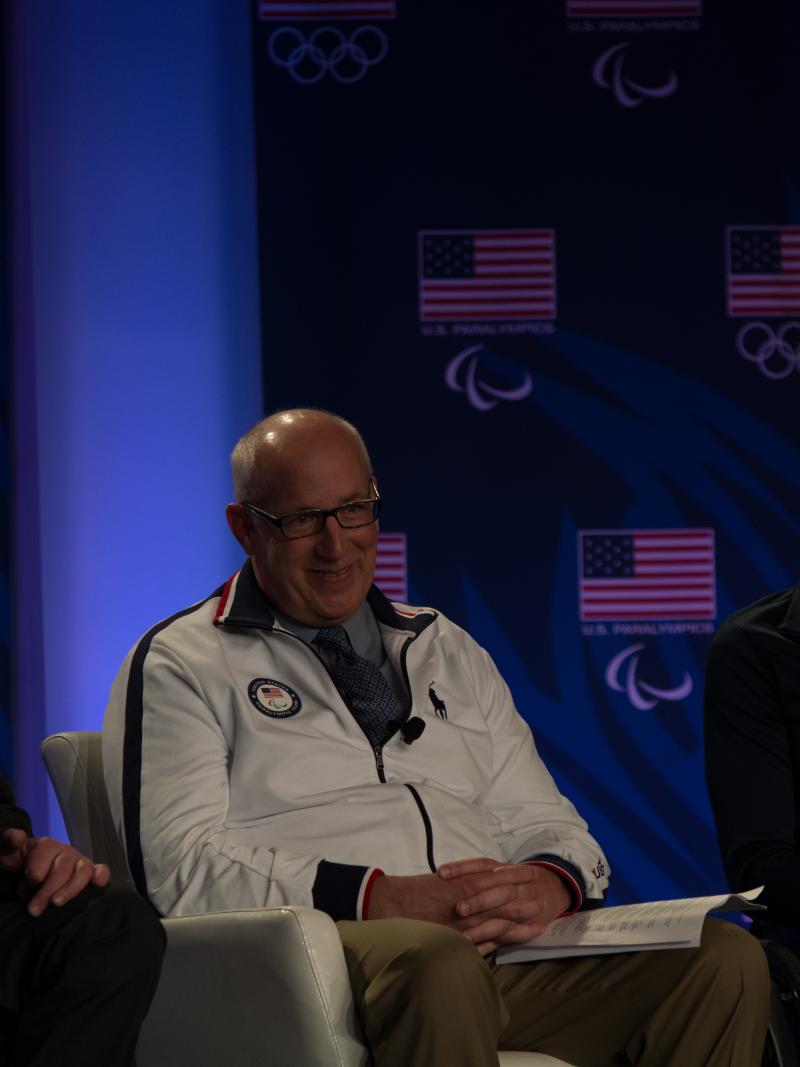Washington DC roundtable shares how sport can advance disability employment
Several of the US’s leading disability advocates attended the meeting which was hosted by the IPC and US Paralympics. 10 Mar 2016
Judith Heumann, Special Advisor for International Disability Rights, Bureau of Democracy, Human Rights and Labour, US Department of State, addresses the IPC/USOC roundtable discussion in Washington DC.
The IPC and US Paralympics hosted several leading US disability advocates at a roundtable discussion in Washington DC, the USA, on Wednesday (9 March) to talk about improving employment opportunities for people with a disability.
Held at the US headquarters of IPC international partner BP, panellists included IPC President Sir Philip Craven, Judith Heumann, Special Advisor for International Disability Rights, Bureau of Democracy, Human Rights and Labour, US Department of State; Jennifer Sheehy, Deputy Assistant Secretary, Office of Disability Employment Policy, US Department of Labour and Cheri Blauwet MD, Chair of the IPC Medical Committee and Instructor in Physical Medicine Rehabilitation/Sports Medicine at Harvard Medical School. Dan Brooke, Chief Marketing Officer of British broadcaster Channel 4, also joined the event via video conference from London, Great Britain.
To kick-off the three-hour panel, Judith Heumann gave a broad perspective on disability rights in the US, covering both historical and current challenges and opportunities, whilst Jennifer Sheehy talked about US employment rates, barriers and interventions for people with a disability.
Three-time Paralympian and seven-time medallist Cheri Blauwet then presented results from a pilot study which revealed that people with a spinal cord injury are 2.4 times more likely to be in employment if they participate in organised sport.
Sir Philip Craven revealed data from a joint IPC/U.S. Paralympics research study into attitudes towards disability and employment in the US. The research revealed:
- One in three Americans think a person with a disability would not be able to do their job.
- 39 per cent believe an employee with a physical disability would get paid less compared to other employees doing the same job, and worrying one in nine people believe less payment would be justified.
- 28 per cent would not hire a person with a disability for a job
Finally, Dan Brooke spoke at length about how the London 2012 Paralympics Games not only transformed attitudes towards people with an impairment in Great Britain but were the broadcaster’s finest hour, changing the way they operated as a socially inclusive business.
Sir Philip Craven said: “The roundtable event was part of our strategy to raise awareness in the US of the transformational effect of the Paralympic Movement ahead of the Rio 2016 Paralympic Games and I would like to thank all those who attended Wednesday’s roundtable discussion.
“There was lots of excellent dialogue involving several leading disability advocates in the US. I think everyone in the room, especially after hearing from Channel 4’s inspirational Dan Brooke, fully understood the role Paralympic sport can play in transforming attitudes and contributing to a more equitable society for all.”





